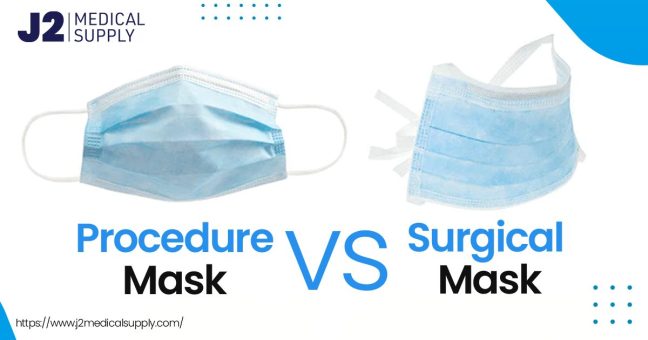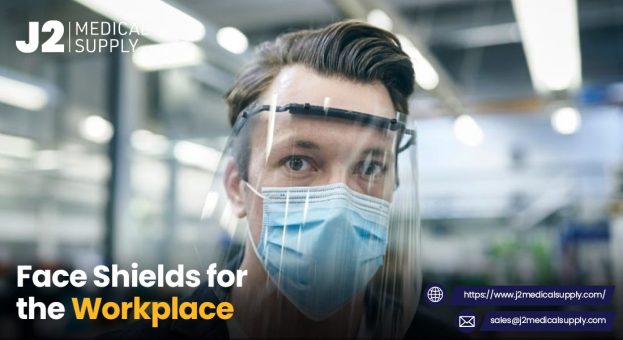In the midst of the COVID-19 pandemic, face masks have become a vital part of our daily lives, serving as a crucial line of defense against the spread of the virus. With the market flooded with various types of masks, it’s important to understand the distinctions between them. In this article, we will decode the differences between procedure masks vs surgical masks, shedding light on their unique characteristics and functionalities.
As the world battles the COVID-19 pandemic, the use of personal protective equipment (PPE) face masks has become paramount in minimizing the transmission of the virus. Among the array of masks available, procedure masks and surgical masks are two commonly used options. Let’s delve into their features and discern the disparities.
Choosing the Right Mask: Procedure Mask vs. Surgical Mask
The COVID-19 pandemic has necessitated the widespread adoption of face masks to curb the spread of the virus. Masks act as a barrier, reducing the risk of respiratory droplets containing the virus being expelled or inhaled. Proper and consistent use of face masks is crucial in protecting both individuals and communities.
Types of Face Masks
Before we delve into the differences between a procedure mask vs. surgical mask, let’s briefly discuss a few other common types of face masks.
1. Procedure Masks
Procedure masks, also known as medical masks or disposable masks, are lightweight and loose-fitting. They are designed to cover the mouth and nose, providing a physical barrier against large respiratory droplets and splashes. Procedure masks are commonly used in healthcare settings, during medical procedures, and by the general public for everyday protection.
2. Surgical Masks
Surgical masks are also disposable face masks but are designed with specific features for use in sterile environments such as operating rooms. They offer a higher level of protection compared to procedure masks. Surgical masks are fluid-resistant and provide a barrier against smaller respiratory droplets, including those carrying infectious agents.
3. N95 Masks
N95 masks, classified as respirators, are highly efficient in filtering out airborne particles, including viruses and bacteria. They provide a close facial fit and are capable of filtering at least 95% of airborne particles. N95 masks are primarily used by healthcare professionals and individuals working in high-risk environments.
4. Reusable Cloth Masks
Reusable cloth masks, as the name suggests, are fabric-based masks that can be washed and reused. They offer a sustainable and cost-effective option for non-medical purposes. While cloth masks may not provide the same level of filtration as procedure or surgical masks, they still serve as a valuable tool in reducing the transmission of respiratory droplets.
Key Differences between Procedure Masks and Surgical Masks
Procedure masks and surgical masks differ in several aspects, which contribute to their varying functions and levels of protection.
1. Design and Function
Procedure masks are typically rectangular in shape, featuring pleats that allow for easy expansion over the nose and mouth. They are secured to the face with ear loops or ties. Surgical masks, on the other hand, have a more molded and contoured design, often with a metal strip to shape around the nose for a tighter fit. They are usually secured with ear loops or head straps.
2. Filtration Efficiency
While both procedure masks and surgical masks serve as physical barriers, surgical masks offer higher filtration efficiency. They are designed to filter out smaller particles, including bacteria, with a minimum filtration efficiency of 95%. Procedure masks, while providing some filtration, are primarily intended to block larger droplets and splashes.
3. Fluid Resistance
Fluid resistance is a critical factor in surgical masks due to their intended use in sterile environments. Surgical masks are tested and graded based on their resistance to penetration by synthetic blood and bodily fluids. Procedure masks, on the other hand, may not undergo the same rigorous testing for fluid resistance.
4. Intended Use
Procedure masks are commonly used in non-sterile healthcare settings, clinics, and general public environments. They provide a level of protection against respiratory droplets, making them suitable for everyday use. Surgical masks, with their higher level of filtration and fluid resistance, are primarily used by healthcare professionals during surgical procedures and in other sterile environments.
Choosing the Right Mask: Factors to Consider
When it comes to the choice between procedure mask vs surgical mask, several factors should be taken into account. These include the specific environment in which the mask will be used, the level of filtration required, and the anticipated exposure to bodily fluids or potentially infectious materials. It is important to adhere to the guidelines provided by healthcare providers, healthcare authorities and follow local regulations.
Both procedure masks and surgical masks play a crucial role in reducing the transmission of COVID-19. Procedure masks provide a basic level of protection for individuals in non-sterile environments, while surgical masks offer enhanced protection for healthcare professionals and patients during medical procedures. The choice of medical face covering should align with the intended purpose and level of risk.
Affordable Face Coverings: The Benefits of Disposable Masks
Disposable masks, including procedure masks and surgical masks, offer affordability and convenience. They are readily available and do not require frequent washing or maintenance. Disposable masks are a practical choice for individuals seeking a cost-effective and efficient solution for personal protection.
In the battle against COVID-19, understanding the differences between procedure masks and surgical masks is essential. While both serve as valuable tools in reducing the transmission of the virus, they vary in design, filtration efficiency, and intended use. By choosing the appropriate mask based on specific needs and guidelines, individuals can contribute to the collective effort in curbing the spread of COVID-19. For reliable and high-quality PPE face masks, including procedure masks and surgical masks, consider J2 Medical Supply as a trusted source, offering a wide range of affordable and effective face coverings.




